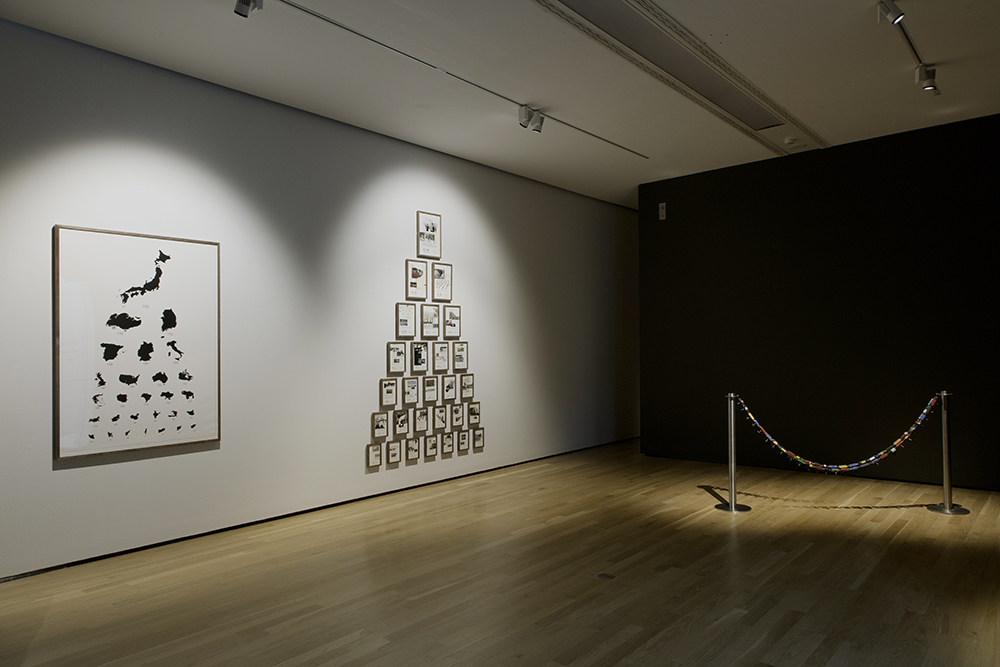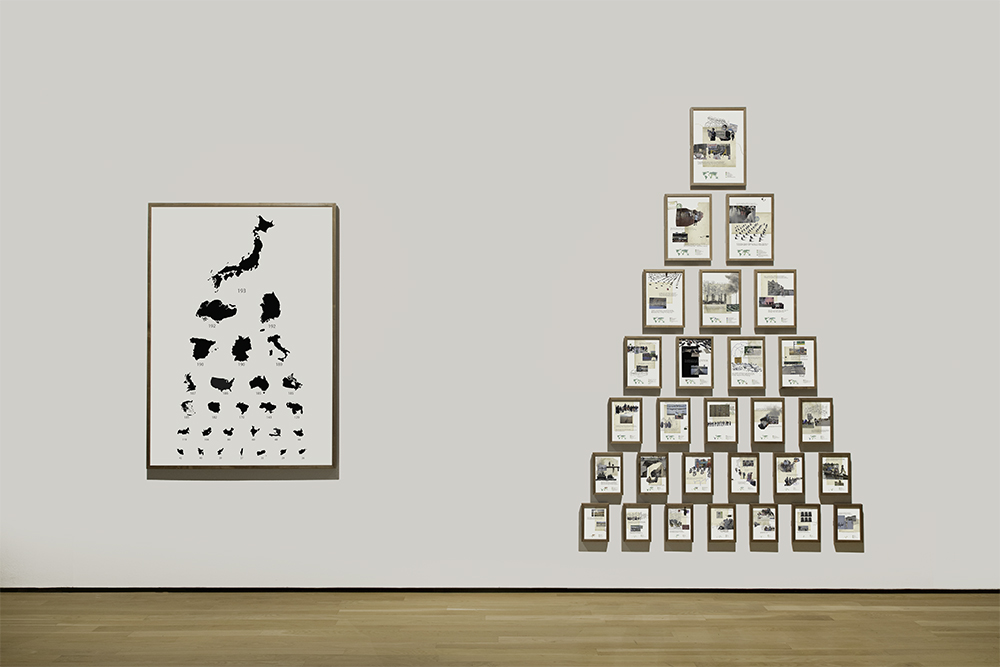
Pattern Recognition
2021 – 2022
Hahnemuhle archival photorag paper
29-part photowork
A passport is a portal to the world, but mobility is not equal for all. In this conceptual, digital collage-based body of work Reena addresses the ever-shifting politics of access and inequity in the form of international travel authorisations. While national borders have appeared recurrently in her work, here they appear not as fences or barricades hoisted on land but as constraints produced through privileges and policy. Kallat contemplates on how ‘the pandemic has revealed not just our deep disconnect with the natural ecosystems but has exposed new boundaries between nations, and new defences between the self and the world’. COVID-19 associated travel restrictions brought further additions to the toolbox of migration containment instruments employed by the privileged nations. This has caused the widest global mobility gap by broadening the inequities between the north and south hemispheres. For her multi part photo-work, Kallat draws upon the uneven statistics and policy landscape of global mobility gap, to sketch an identikit of our unequal planet.
A Snellen Eye Chart with letters replaced by the maps of nations in a hierarchical scaled arrangement, provides a key. At the top of the pyramid is Japan, where in 2022 a passport grants its citizens access to 193 countries, while at the base are those countries with least global access and agency such as Afghanistan. Each frame appears like a page from a scrapbook, a fragmented sketch of a nation, in which Kallat has layered found images culled from the internet and news channels. These reference the war in Ukraine, the Rohingya refugee crisis in Bangladesh and migration caused by global conflicts, mass demonstrations and protests, the challenges wrought by COVID-19 pandemic, the effects of climate change and the lack of equal opportunities. Documenting cause and effect, Pattern Recognition embodies our divided yet connected world.
















Pattern Recognition was first commissioned for Critical Times: Dialogues in Contemporary Photography by Autograph, London in 2021-22, supported by Bagri Foundation